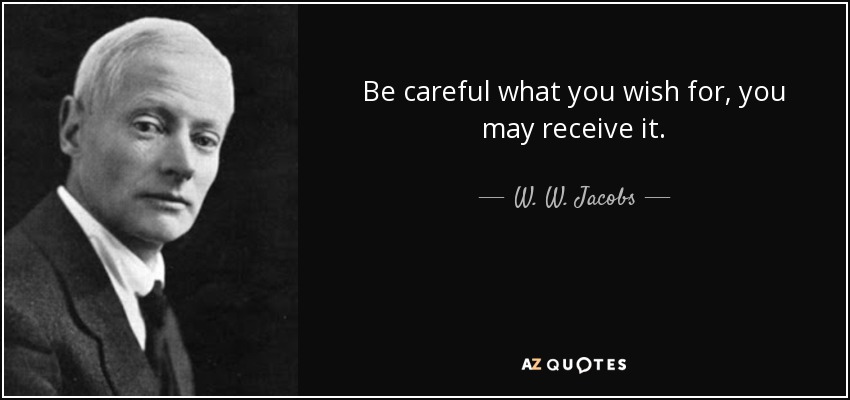 |
| (source) |
Before talking about something, it’s always a good idea to understand what is it one is talking about. That applies to everything, the much-talked about UBI included.
It’s not clear, however, that people talking about the UBI really understand what it is.
So, let’s try that.
UBI stands for Universal Basic Income. “Basic income” refers to “a periodic cash payment unconditionally delivered to all on an individual basis, without means-test or work requirement”.
“Universal” highlights something present in that definition: all members of a community are entitled to the UBI. In Australia that would mean that the Government regularly pays every citizen/resident an amount of money – presumably equal – no strings attached.
Last but not least, implicit is the idea that the UBI is permanent.
By itself this definition raises some evident questions (for example: How much money those individuals would be paid? Where is that money coming from?). They are important but the answers to them depend on many things, including what money is. So, we’ll bypass them.
----------
Let’s instead compare the UBI with JobKeeper.
Originally, when it started last March, JobKeeper recipients were to receive periodic (more precisely, fortnightly) cash payments of $1.5K. To get JobKeeper workers – part- or full-time – were nominated by their employer and weren’t required to do anything additional for those payments. As in the old song, it was “money for nothin’”.
It would seem, therefore, that JobKeeper was a close match to the UBI, right?
Well, no. Not really. JobKeeper is strictly temporary, notoriously so in fact, for it was predicated on being an emergency measure. However, shouldn’t the UBI be permanent?
Conceivably one could support an initially generous but temporary JobKeeper during emergencies but not an equally generous but permanent UBI during normal times. Makes sense?
----------
There’s more. JobKeeper was not universal. It was subject to income thresholds and meant only for permanent staff currently engaged by an employer. That legitimately excluded age pensioners and the unemployed.
Casuals and visa workers and tertiary education workers were also excluded – arbitrarily – from JobKeeper. No amount of pleading sufficed to change Scott Morrison’s mind about that.
But the UBI is supposed to be universal.
----------
Tim Hollo, from the Green Institute, and the ABC’s Gareth Hutchens believe public perception of JobKeeper (and JobSeeker) reinforces the idea that there’s public acceptance of the UBI.
I doubt it. They ignore crucial differences, as explained above. But the real problem is the many, many disturbing similarities.
For starters, JobKeeper is notoriously vulnerable to political whim. The exclusions to the list of beneficiaries is just one example. Here goes another: with Labor’s complicity, Morrison introduced different amounts for part- and full-timers; the payments themselves were reduced. Why wouldn’t UBI recipients face the same problem?
Beyond telling sad personal stories to ABC reporters, there is nothing JobKeeper (and JobSeeker!) recipients affected can do about those arbitrary cuts. They can’t collectively bargain, for they can’t strike (nor even take “protected industrial action”!). They have nothing with which to bargain: they can’t deny employers their labour, for they don’t labour for any employer. Wouldn’t the same apply to UBI recipients?
Let me put this in words Marxists still remember but that are apparently distasteful to the modern liberal/Left for they must make a deliberate effort to keep out of mind: the UBI exists in a world with no class struggle. Ironically, that comes after even Jim Stanford – of all people! – seemed to understand that Morrison’s Kumbaya moment was short-lived.
----------
JobKeeper was as much a transfer to workers as it was a wage subsidy to their employers. In other words, the Government paid employers to keep those workers in their payrolls. That’s why employers were eager to accept it, in the first place. And they made big bucks from it.
But I am under the impression that the UBI is not a wage subsidy. If I'm right, what’s in it for employers? If I'm wrong, why wouldn’t they make big bucks from it?
----------
It’s unclear that one can extend public perception of JobKeeper to the UBI, for both things are different enough to make that a comparison of apples and oranges. Survey respondents may know it, even if UBI fans prefer to ignore it.
But that’s not the point I need to highlight here. It’s the similarities that I find disturbing.
Compare the UBI with MMTers’ Job Guarantee. To some the JG may sound underwhelming; the problem is that the UBI is just too good to be true.
My point is that the UBI is an inherently bad idea made to look good through sheer wishful thinking. Even if voters could be persuaded to support it, it doesn’t change that fact.
Sorry, fellas, too much wishful thinking, too much of “money for nothin’ (and chicks for free)”. Don’t get me wrong, I’d like that as much as the next bloke, but it just ain’t gonna happen, or at least I hope so. :-)
No comments:
Post a Comment